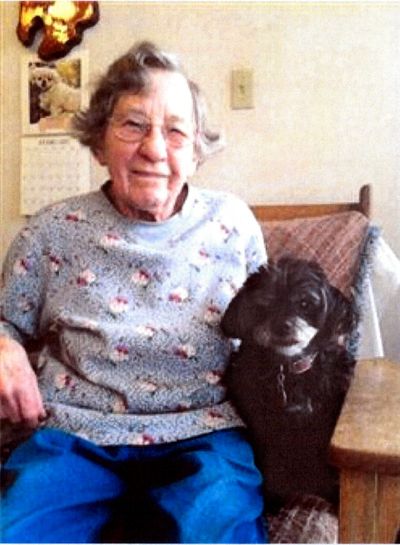Helen Stowell ‘lived like a pauper’ but left $3 million to Inland Northwest Community Foundation

When Helen F. Stowell, the last survivor of a pioneer Spokane family, died in the summer of 2015 at 93, hardly anyone knew she was wealthy.
A few more do now.
Monday night, the Inland Northwest Community Foundation announced at an annual gathering at the Davenport Hotel that a $3 million bequest from Stowell had pushed the foundation’s philanthropic assets above $100 million.
“She’s a local hero,” said Mark Hurtubise, the foundation’s president and CEO.
From all accounts, the petite social worker lived a frugal life in the modest, longtime family home on the North Side, a few blocks from the Spokane County Courthouse. She never married.
The fortune she inherited originated with the family drugstore and assay office, which her grandfather established in 1891. Her father kept the business open in downtown Spokane into the 1960s.
Back in the 1980s, she was advised to get her arms around the family holdings. And, according to Hurtubise, that led to her arriving at the Richards, Merrill & Peterson investments firm with a brown grocery bag full of stock certificates.
“Literally,” he said. “A grocery bag full of stock certificates.”
That led, eventually, to the inclusion of the foundation in her will. She wanted to support programs aimed at animal welfare, wildlife and protecting the environment.
The foundation oversees a wide-ranging network of local grants, scholarships and targeted endowments. It was created in 1974.
Stowell’s $3 million earmarked for the foundation does not represent the entirety of her estate, attorney Peter Moye said. “Beyond that, there’s not much I can say.”
Moye met Stowell a couple of times. “She was a neat lady. Not an ounce of pretentiousness.”
The will is in the final stages of probate.
“She lived like a pauper,” said the daughter of one of Stowell’s cousins, who requested anonymity. “She just felt like that wasn’t really her money.”
She wore old clothes, drove an old Subaru and took in rescue dogs (and an occasional cat).
Linda Hawkins, who lived two doors to the west of Stowell for 20 years, smiled and shook her head upon learning her unassuming neighbor had been rich. “I’ll be darned. Isn’t that something? You never would have known. Never.”
Hawkins said she and Stowell gave each other vegetables from their gardens. “I’d see her walking with her dogs. It’s funny. She was kind of a loner but she liked to talk.”
Sometimes it would be about the kids in the house between them and how they were getting on Stowell’s nerves. (That family has moved.)
Stowell attended North Central High School and Washington State University.
She served in the U.S. Naval Women’s Reserve during World War II and the Korean War. She wrote letters home about young men she was dating.
She loved hiking and skiing. She participated in Bloomsday.
It’s not unusual for those who experienced the Great Depression to exhibit penny-pinching ways. But according to her cousin’s daughter, Stowell was thrifty in the extreme.
“She would groan over having to pay 25 cents to replace a worn-out washer.”
Another time, after she had owned a lawn mower for two or three years and it developed some problem, she had to be talked out of trying to take it back to the store for a refund.
Her house did not have air conditioning.
She could have afforded that, of course. And so much more.
But she liked her life just the way it was, Hurtubise said.
Maybe that’s a kind of wealth all its own.